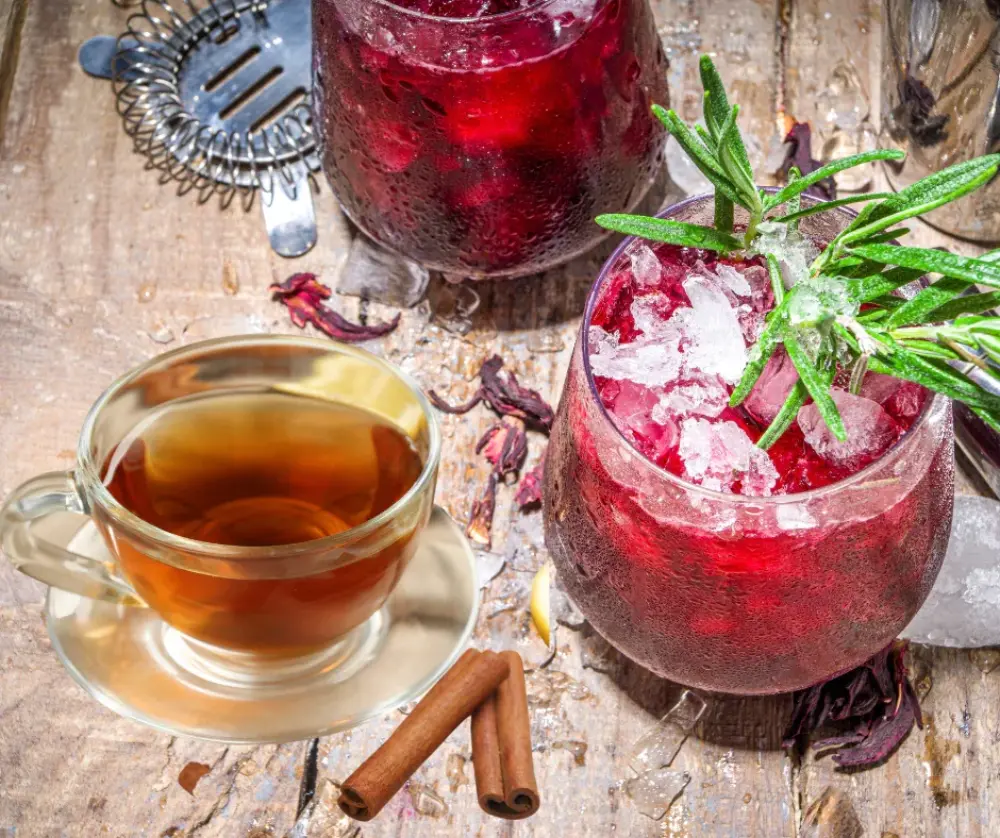
Tisanes or Infusions
- Tea4USA
Some might call me slack, but I like to excuse myself for just being busy, I am very much aware that I haven’t written in some time. I have wanted to, but life seems to get in the way whenever I sit down at the computer with a blank page on the screen. Today I am committed to getting this post written. I have been pottering around in my garden and what struck me was the array of plants growing that I could easily pick to create wonderful summer drinks. So today I want to talk about tisanes, or infusions.
I mentioned briefly in an earlier blog that all tea comes from the Camelia sinensis plant. Infusions on the other hand are a great way to enjoy the benefits of fruit, spice and herbs in a delicious and refreshing way, the only restriction to the flavor variety is your imagination. At Tea4usa we import a wonderful selection of infusions, old favorites such as Anise, Rooibos, Chamomile, and Lemongrass. We also have a wide selection of Moringa, either on its own or flavored with fruit such as strawberries or peaches, flowers such as hibiscus, and herbs such as mint. Personally, I like to use these as a base for more imaginative concoctions.
There are many benefits of drinking herbal infusions ranging not only from the vitamins, minerals and other plant constituents that they release but also the short and long-term health benefits they provide, from being calmative and improving your well-being to aiding digestion. Herbal infusions are very good at combating the stress of everyday life and are a great alternative to your daily sugary and caffeinated drinks. Besides that, they are flavorful and a great way to express your creativity.
There are many herbs that can be grown at home to make your own infusions, here are some of the best:
- Mint: Mint is a classic herb that is easy to grow and adds a refreshing flavor to any infusion. It is also known for its digestive and calming properties.
- Chamomile: Chamomile is a popular herb for infusions due to its calming and soothing effects. It is also known for its anti-inflammatory properties.
- Lemon balm: Lemon balm is a citrusy herb that is great for infusions. It is known for its calming effects and can also help with digestion.
- Lavender: Lavender is a fragrant herb that is great for infusions. It is known for its calming effects and can also help with headaches and anxiety.
- Rosemary: Rosemary is a versatile herb that can be used in many different infusions. It is known for its antioxidant properties and can also help with memory and concentration.
- Cornflowers: Cornflower has petals that are considered a tonic and stimulant. Historically it is said that Chiron, an ancient Greek Centaur, taught mankind the healing value of this herb. The petals of Cornflowers have a mild taste and pleasing blue color that add both depth and color to herbal infusions.
- Marigolds: Pot Marigold's are a great source of antioxidants, flavonoids and vitamin C. Its bright orange flower petals contain antiseptic, anti-fungal and anti-bacterial properties that promote healing. As the petals are flavor neutral, it provides medicinal and decorative benefits to herbal infusions.
- Nettle: Nettle is one of the best overall tonics for the body. It is very beneficial to the kidneys, lungs, intestine, arteries, hair, and skin when taken over a long period of time. It is high in both calcium and magnesium that is easily absorbed by the body. It has some natural antihistamine properties, and the high nutrition strengthens all our body systems, so it works well for allergies.
Of course, with the summer comes the pleasure of trying some of these ideas as fresh additives to your jug of water chilling in the fridge. Be adventurous, take a handful of fresh herbs and edible flowers and add them and some fruit to your jug for a sugar-free thirst quencher. Mint and apple, basil and peaches, oregano and lime, rosemary and berries are a few ideas to get started.
Just remember when making your own herbal infusions, it is important to use fresh herbs for the best flavor and benefits. Please make sure you only make infusions from herbs (or plants) that you know are edible. It is important to remember that some herbs can be harmful if you consume too much, such as if the infusions are allowed to steep too long. Combining the wrong herbs can also lead to problems, as can the interactions between certain herbs and prescribes medicines. For this reason, please do your research before making any infusion you intend to drink. It's best to follow recipes from trusted sources and pay attention to any warnings given. Happy brewing!

 0
0
